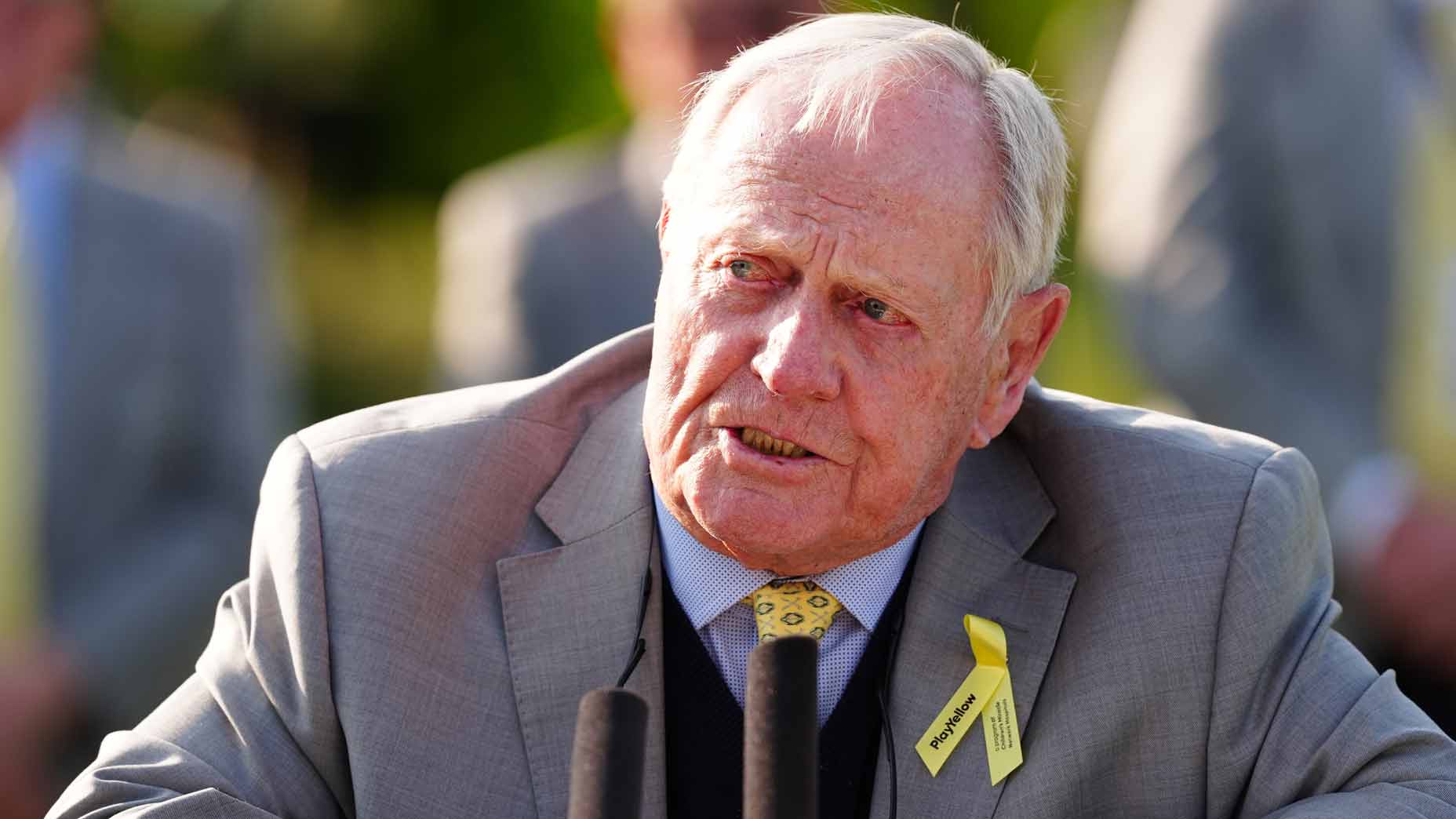In its globetrotting work in golf design, Nicklaus Design has built courses virtually everywhere.
Now comes its first virtual course.
Nicklaus Companies announced Wednesday a partnership with a New York-based technology company to develop the first professionally designed championship golf course and members-only club in the metaverse.
Through its deal with the tech startup, Hyperscapes Golf Club, Nicklaus Design will apply its traditional design philosophies to a state-of-the-art virtual landscape, giving rise to a one-of-a-kind course, playable for its members from anywhere in the world.
“The core of Nicklaus Design has always been the artistry and knowledge of our designers and their understanding and respect for the history traditions of the game of golf,” said Phil Cotton, CEO of Nicklaus Companies. “We now bring that unprecedented, real-world expertise to the virtual world.”
While virtual golf is nothing new — simulators have been around for years, and their presence in the market has been exploding — this new club is meant to be a departure in both its design and the experience it offers. Unlike simulators, which serve up digital doppelgängers of existing courses, the Nicklaus-Hyperscapes design will be an original layout that brings the attributes of an expertly conceived physical course to unique and richly detailed virtual terrain, replete with photo-realistic 3D scenery.
“This is really an art and technology project,” said Gabor Tankovics, CEO and co-founder of Hyperscapes Golf Club. “I think of the course designers involved as marble sculptors, taking virgin terrain, with minimal intervention, and thinking, How can I use that rock or that valley?”
What’s more, Tankovics said, rather than replicate an existing course, the goal is to replicate “the private club experience” — not merely in the shots and rhythms of a round but also in the social interactions.
“Think about the promise of a simulator experience, where they say, ‘Here’s what it’s like to play Pebble,’ but obviously that’s not true,” Tankovics says. “You don’t have the four-minute walk to your ball, or the conversations with your playing partners, or the clubhouse interactions after the round. To me, that simulated experience is super-underwhelming. So much of golf is about the empty spaces, the moments between shots. And that’s what is especially exciting: How do you fill those empty spaces in between?”
This crypto-backed start-up golf club just raised $11 million. Next up: buy a golf course.By: Josh Sens
A Hungarian-born, French-educated entrepreneur, Tankovics got his start in golf more than a decade ago as the general manager of Chambord Country Club, an eco-minded golf resort in France that stalled in the development process and never opened. It was, in part, the bureaucratic difficulties of building a physical course, Tankovics said, that first got him thinking about a metaverse golf project.
More recently, in New York, where he has lived and worked for the past decade, Tankovics said he saw “an important reference” in a venture called LinksDao, a crypto-financed golf club that raised more than $10 million in NFT-based membership sales, which it used to purchase a physical course in Scotland. The difference, Tankovics said, is that where LinksDao built a community with the goal of acquiring a real-world course, Hyperscapes is building fully virtual courses, around which it plans to grow communities, stitched through with friendships and smack-talk and post-round cocktails and more: the social fabric of a club, existing in the metaverse.
But those are features that will be layered on later. Other details about the Hyperscapes-Nicklaus Design project are still being fine-tuned, too, including the virtual-reality setups that golfers will use to play the course.
For now, Tankovics said, the priority is to complete the course itself, which is expected to be open for play in the second half of 2024.
Like an exclusive club in the real-world, Hyperscapes will sell limited memberships, which will be capped at 300. Tankovics declined to specify a price but said that initiation fees will be on par with those of a “moderately priced” private club. Though he said the use of crypto is key to ensure that “memberships are secured in the blockchain,” conventional currency will also be accepted.
Early access to the club is now being offered through a Founders’ Program limited to 30 memberships. Founding members will be granted private access to follow the design process through virtual site visits that allow them to watch the course take shape.











